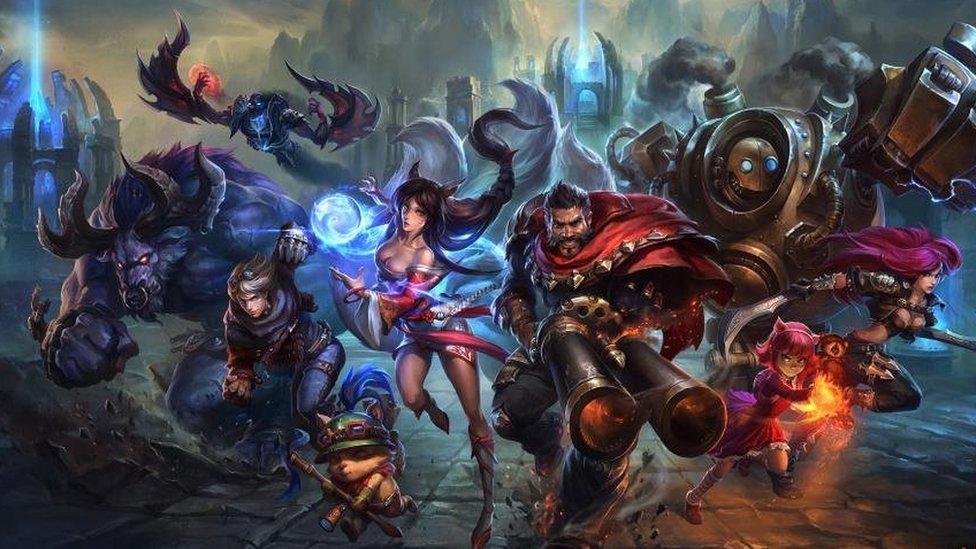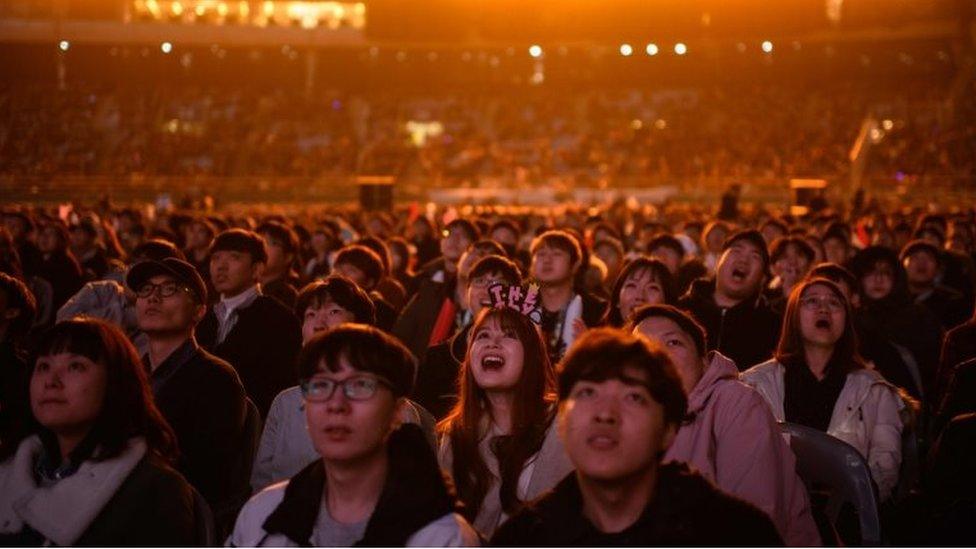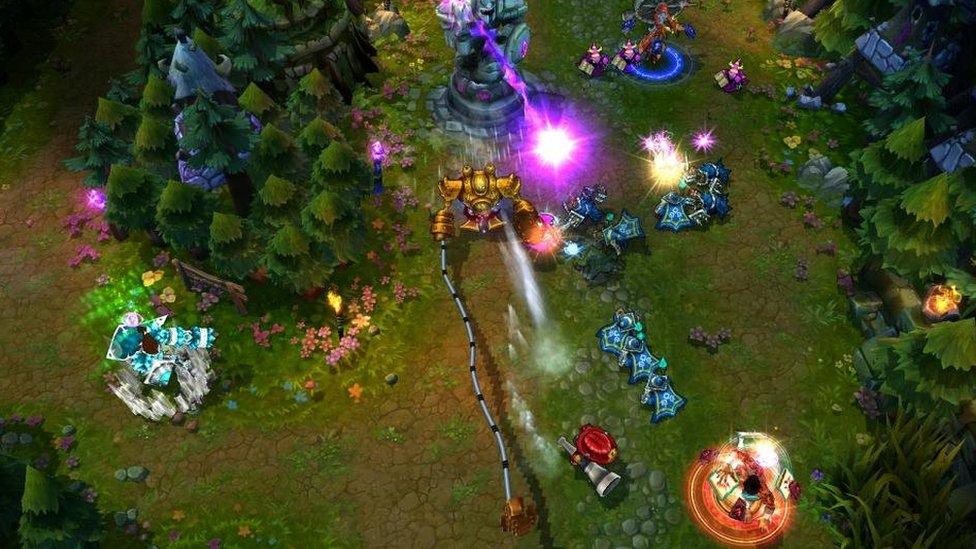League of Legends firm sued over workers' sexism claims
- Published

Riot's League of Legends is one of the most lucrative video games
League of Legends's developer is facing legal action over allegations it paid female employees less than men because of their gender and tolerated sexual harassment.
The action against Riot Games is being pursued by one of its former workers as well as a current staff member.
It follows investigations by the Los Angeles Times and the news website Kotaku, which made related claims.
Riot has not said if it will challenge the accusations.
"While we do not discuss the details of ongoing litigation, we can say that we take every allegation of this nature seriously and investigate them thoroughly," it said in a statement.
"We remain committed to a deep and comprehensive evolution of our culture to ensure Riot is a place where all Rioters thrive."
The company also referenced continuing efforts to "evolve" its values, external.

In addition, its homepage currently highlights a blog published in August that acknowledged, external it needed to do more to tackle sexism and misogyny and apologised for taking "so long" to hear workers' concerns.
'Bro culture'
League of Legends is one of the world's most popular multiplayer games and attracts large audiences to its e-sports competitions.
At one point, more than 205 million people were reported to have been simultaneously watching, external the game's most recent World Championship, last weekend, according to analytics provider ESportsCharts, external.

Many of the spectators at the League of Legends World Championship in South Korea were female
But the title's Los Angeles-based developer has also become a focus of complaints about gender bias - claims of which have also been made about the wider industry, external.
The legal action is being led by Melanie McCracken - an internal communications specialist who has worked at the company since 2013 - and Jessica Negron - a content editor who quit in 2017 after being employed for two years.
Their complaint - which has been shared online by Kotaku, external - states that the company fostered a "bro culture", with specific claims including:
female workers had been sexually objectified, with an email chain that rated the company's "hottest women employees" and a thread that referred to one woman as being a good target to sleep with and not call again
one of Riot's co-founders had used the phrase "no doesn't necessarily mean no" as a slogan during a company meeting
female staff had been regularly belittled by supervisors whose alleged comments had included: "Her kids and husband must really miss her while she was at work," and: "She's shrill"
unsolicited images of male genitalia had been shown to workers by their bosses and colleagues
women had been required to take part in online games where they were "routinely harassed and demeaned" by others
In addition, the two have made complaints about their own treatment.
Ms Negron alleges that while earning $56,000 (£42,500) she had been asked to take on the duties of a former manager who had earned about $160,000.

New features have regularly been added to League of Legends, which was first released in 2009
She said that during the six months for which she had taken on the responsibilities involved she had not received a salary increase nor had she ever been interviewed for the manager's post - which was eventually given to a succession of three men.
After further setbacks, she said, she had left after realising Riot would never promote her or pay her a fair salary for the roles it had expected her to carry out.
Ms McCracken alleges that she had spoken in confidence to the company's human resources department about a supervisor who made sexist hiring decisions, only for the manager to reveal he had been informed she had made the complaint.
Ms McCracken said that in a separate role she had later been falsely accused of showing people pictures of another Riot executive at a strip club and of uploading naked images of him to the dark web.
This led to a situation, she claims, in which she had missed out on a promotion and faced a "dire future" at the company as a result.
The two women now want the Californian courts to let the case go before a jury.